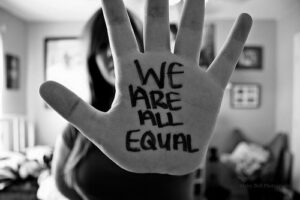U.S. Visa Policy Against Trans Athletes Hurts Sports and Rights
If the concern is one of performance or advantage, those are the mechanisms by which to judge the athletes on a case-by-case basis,

The U.S. government's decision this week to alter its visa policy for foreign athletes may seem like a technical administrative tweak. In reality, it's a huge political statement. Under new guidelines released Monday by the U.S. Citizenship and Immigration Services (USCIS. Photo/ Courtesy
By Mercy Chelang’at
The U.S. government‘s decision this week to alter its visa policy for foreign athletes may seem like a technical administrative tweak. In reality, it’s a huge political statement. Under new guidelines released Monday by the U.S. Citizenship and Immigration Services (USCIS), transgender women who compete in female sporting categories can now be flagged adversely when applying for certain sports visas. That should concern anyone who believes that fairness involves protecting all athletes, not just those who happen to fit into traditional boxes.
Let’s be clear: this policy doesn’t come out of thin air. It follows closely on the heels of recent Trump administration actions, including a February executive order barring transgender women from competing in women’s competitions. Taken together, these actions sketch the outline of a government champing at the bit to legislate identity, and, in the process, reduce human lives to bureaucratic classifications.
The stated reason for the visa ban is “fairness.” Fairness, however, should not be employed as a means of exclusion. International sporting bodies like the IOC already possess rules governing transgender eligibility. If the concern is one of performance or advantage, those are the mechanisms by which to judge the athletes on a case-by-case basis, not to exclude them wholesale on the basis of gender identity.
More directly, we have to ask: who is really under threat here? Transgendered athletes are already among the most regulated competitors. They face intrusive questioning, public suspicion, and in most instances, severe medical complications. To now tie their immigration status to their identity is not just discriminatory, it’s sadistic.
This isn’t to make sports fair. This is to exclude certain people. And it’s a message to the world that trans athletes aren’t welcome, not just in competition but in the country at all.
These policies aren’t going to stop at sports. Policies create precedents. They create culture. And they teach a new generation of athletes that identity is a liability.
If the U.S. wants to be taken seriously as a world sports leader and as a nation of equality, it must do better than this.








